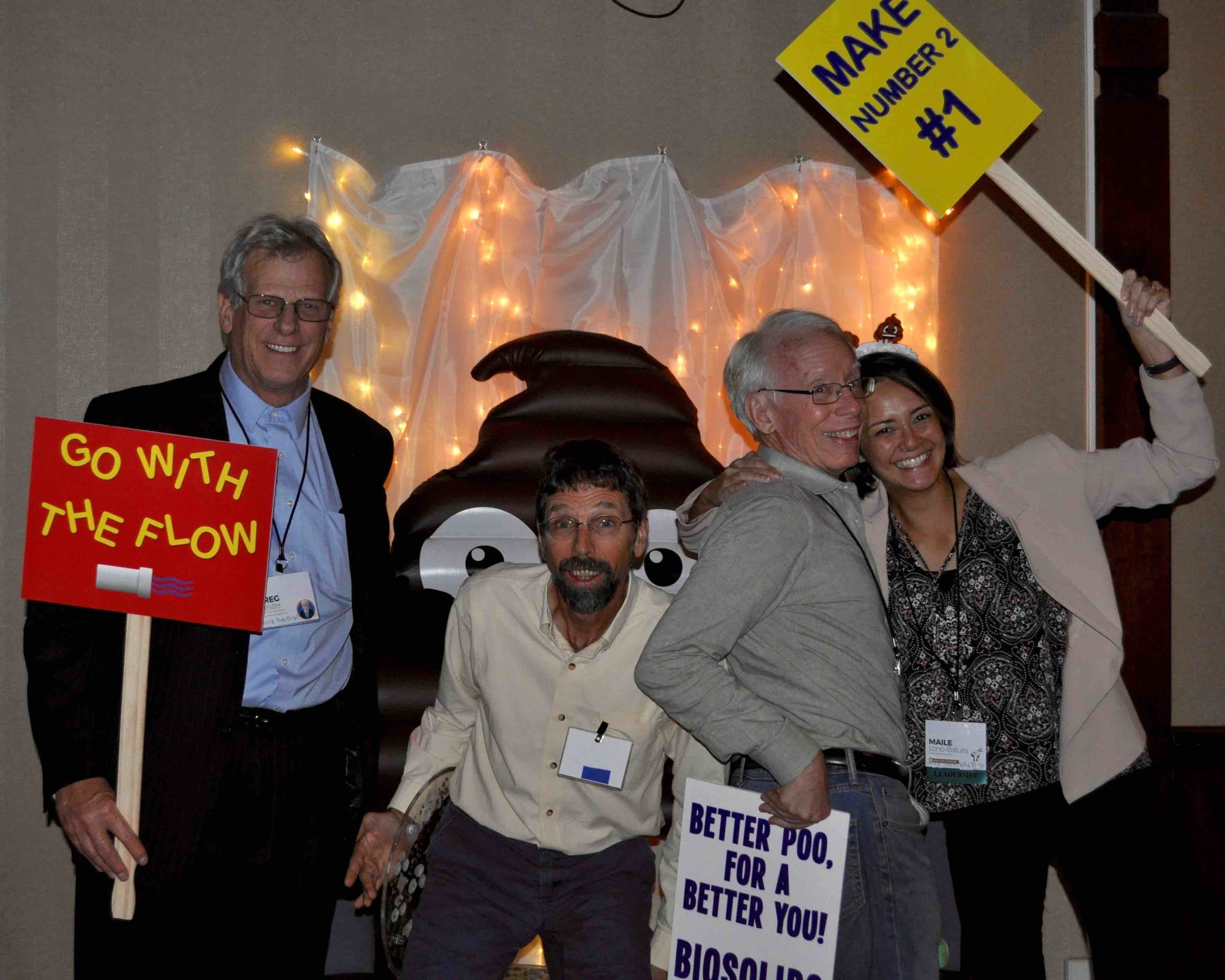09/27/13
updated 01/02/2018
Why Biosolids Organizations Are Needed...
...And Why You Should Be Involved!
Biosolids regional groups & committees - Resources for your biosolids management programs....
The recycling to soils of biosolids - treated and tested sewage sludge - continues to be challenged, despite decades of research and experience. (For a summary of research and experience - including many best biosolids resources - see "About Biosolids.")
Any day, we can find challenges here and there around the continent. When compared to the thousands of successful biosolids recycling programs that are ongoing – many for decades – these local debates are few and far between. But, locally, they are important. And they are opportunities for dialogue, for advancing public knowledge, for advancing best practices.
Why do these conflicts continue to pop up?
In part, because wastewater treatment and biosolids management continue to be too hidden, not a topic of common knowledge. Social science research on biosolids use and practical experience have demonstrated the need for open communications, sharing of accurate information, and building of trust with communities in which biosolids programs operate.
This is exactly what regional biosolids associations, the National Biosolids Partnership (NBP), and state and provincial biosolids committees do. These independent groups of expert professionals advance research and best management practices. They lead the way toward making biosolids management sustainable.
Staff of the leading regional biosolids groups celebrate decades of success at NW Biosolids' "BioFest," Oct. 2017. L to R: Greg Kester, CASA; Ned Beecher, NEBRA (20 years old); Bill Toffey, MABA (20 years old); Maile Lono-Batura (30 years old).
Biosolids groups do not come free; they are the products of countless volunteer hours and voluntary contributions from diverse stakeholders. They run efficiently on modest budgets, driven by their vision of biosolids and other residuals as solutions to myriad environmental challenges: depleted soils, disturbed sites, greenhouse gas emissions,....
Are you involved in biosolids management? Do you value the research and information that supports your work? Do you want to see the field continue to advance? It won't continue without your contribution, large or small. Get involved and help fund your local biosolids organization. There is no more efficient way to insure your biosolids management efforts.
And to those already involved:
THANK YOU! WELL DONE!
---------------------------------
Biosolids Groups (apologies for any omissions)
Northwest Biosolids, the first such group to form (1987), has fostered cutting edge research and the innovation of myriad exemplary biosolids recycling programs throughout the Northwest, achieving ~100% recycling of wastewater solids in the region. Yet even there, challenges occur: in the mid-2010s, NW Biosolids combatted Wahkiakum County's short-sighted ban on Class B biosolids recycling. Look at NW Biosolids's great resources.
The following three groups, NBP, NEBRA, and the Mid-Atlantic Biosolids Association (MABA), formed at about the same time, in the late 1990s:
The National Biosolids Partnership (NBP) has set its sights on the highest standards, encouraging biosolids management programs to adopt environmental management systems that force continual improvements and focus on measurable outcomes related to environmental impacts and interactions with interested parties, verified by independent, third-party audits. From Orange County and LA in California, to Orange County, FL and LA (Lewiston-Auburn), Maine, and points in between (Chicago, IL; Lawrence, KS; Littleton, CO; St. Cloud, MN; Chattanooga, TN; Atlantic County, NJ; etc., etc.) - as well as Moncton in Canada - select biosolids management programs have raised the bar for quality and sustainability. More than 12% of U. S. biosolids are managed under these programs.
The Mid-Atlantic Biosolids Association (MABA), which encompasses NY, NJ, DE, PA, MD, VA, etc., has advanced some of the most critical primary biosolids research of this century, including understanding of odor generation and pathogen indicator regrowth. MABA holds stellar research and technology symposia and was the leader in creating the Biosolids Land Appliers' certification program with ABC.
The North East Biosolids & Residuals Association (NEBRA) is the regional group for New England and eastern Canada and the producer of NEBRAMail. Its committees and staff are tracking the impacts of proposed bans on landfilling of certain organics (food waste) in MA and VT, phosphorus fertilizer laws and regulations in several states, legislation and regulation around the region, and occasional public concerns about biosolids. Read more about NEBRA's work here.
The Southeast Biosolids Association (SEBA) was formed in 2023 and is currently seeking and assisting members from NC, SC, GA, AL, and FL. SEBA engages in biosolids education and advocates for beneficial use of biosolids across the Southeast. Get involved today to advocate for resource recovery and ensure a sustainable future for biosolids management in the region.
Leading state biosolids groups and committees include the Virginia Biosolids Council (VBC), the California Association of Sanitation Agencies (CASA) Biosolids Program (playing a critical role in ensuring biosolids are recognized resources in the state's sustainability initiatives) , the Rocky Mountain WEA Biosolids Committee, the Texas WEA Biosolids Committee (which holds a regular biosolids conference), the Florida WEA Biosolids Committee, and the WEA of Ontario (WEAO) Residuals & Biosolids Committee (which has produced excellent seminars, notable research summaries on microconstituents, amongst other topics, and the best biosolids video).
Where would biosolids management be without these biosolids groups' efforts? Would we be maintaining a ~60% recycling rate in the U. S. and ramping up biosolids recycling in Canada?
Get involved and help fund your local biosolids organization. There is no more efficient way to insure your biosolids management efforts.

